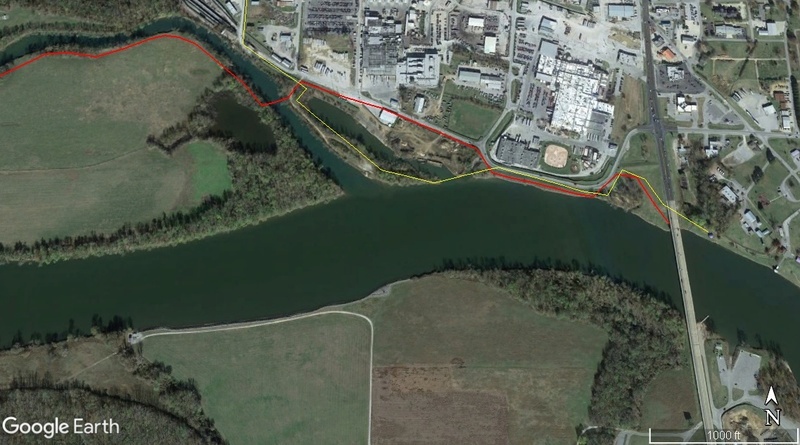Opposed to Dredging
February 22, 2023
Little Rock District Corps Engineers
Regulatory Division
P.O. Box 867
Little Rock, Arkansas 72203-0867
Re: Application Number 1991-00147-19
Thank you for the opportunity to respond in opposition to an application for a permit to allow a sand and gravel dredging operation in the White River at Batesville, Arkansas.
Batesville’s history began with settlements on the banks of the White River and Poke Bayou around 1800. Residents continue to use the Ozark Mountain waters for recreation. The city’s Riverside Park and Kennedy Park lining both sides of the river are a favorite for many. Plans for additional trails along the White River to the mouth of Poke Bayou and then along Poke Bayou exist. Canoers and kayakers utilize Poke Bayou all the way to the confluence with the White River and beyond. A boat launch and dock beneath the White River bridge was built by the Arkansas Game and Fish Commission. Sport fishing is popular in the river upstream and in the streams feeding the river, such as Greenbrier Creek and Poke Bayou.
Most importantly, the public drinking water for most of the Independence County residents and industry comes from two water intake structures located on the banks of the White River. The Southside public water intake is located just upstream and across the river from the mouth of Poke Bayou. The Batesville public water intake is immediately downstream of the White River bridge and the mouth of Poke Bayou. A major upgrade of the city's water utility plant is underway that will help sustain the volume and quality of water that population growth demands.
Water quality at the Batesville public water intake is affected by water coming from the mouth of Poke Bayou. The city’s source water is from the White River directly, and indirectly from Poke Bayou.
Riverbed dredging can be of great benefit for channel maintenance where large vessel traffic is critical. Dredging rivers for sand and gravel to sell for commercial use represents a small percentage of commercial sand and gravel mining. Most of it is mined in open pits and quarries. But river dredging for sand and gravel has the greatest unwanted environmental effects, especially on water quality.
It is well established that dredging, by disturbance of both materials and discharge of spoil materials, can release toxic compounds, heavy metals, pesticides and microbial contaminants that bind to the particulate matter that settles in the riverbed. Oil and grease are a hazard where heavy equipment is used in the river. Aquatic life is adversely affected by the reduced dissolved oxygen and may be smothered by the resettlement of the silt.
River dredging not only creates significant turbidity and siltation of the bed, but it may alter the river channel. The effect of removing riverbed material from a localized area will lead to changes in the riverbed morphology upstream and downstream from the mined area. This often leads to bank destabilization. Much of the riverbanks between Batesville and Lock and Dam 2 are vertically cut and are severely eroded. No doubt this has caused significant discharge of phosphorous and nitrogen into the White River. The bank adjacent to the Southside water intake was so severely eroded that it had to be stabilized with large boulders (at great cost). Any dredging near this bank could destabilize even a bouldered bank. Streambank erosion and loss of riparian vegetation is a major cause of nonpoint source pollution. The Arkansas Division of Natural Resources lists the Middle White River watershed as a Priority Watershed in its Arkansas Nonpoint Source Pollution Management Plan.
The permit allows for a wide possibility of dredging activity, or volume of dredging. A dredging operation here that is active during warmer low river flow months finds itself present with fishermen and boating enthusiasts that enjoy the same conditions. If the activity is primarily around the mouth of Poke Bayou and upstream, this could potentially adversely affect water quality at the municipal water intakes. On the other hand, a large volume dredging operation is possible. It is also possible that the dredging operation being proposed for permitting could be sold and the operation expanded.
Friends of the North Fork and White Rivers is a nonprofit watershed organization that advocates for clean, healthy water in the middle White River watershed. We oppose this permit for the mining of sand and gravel in the White River for the reasons stated above. Thank you for your consideration of our real concerns.
Sam Cooke
President, Friends of the North Fork and White Rivers
